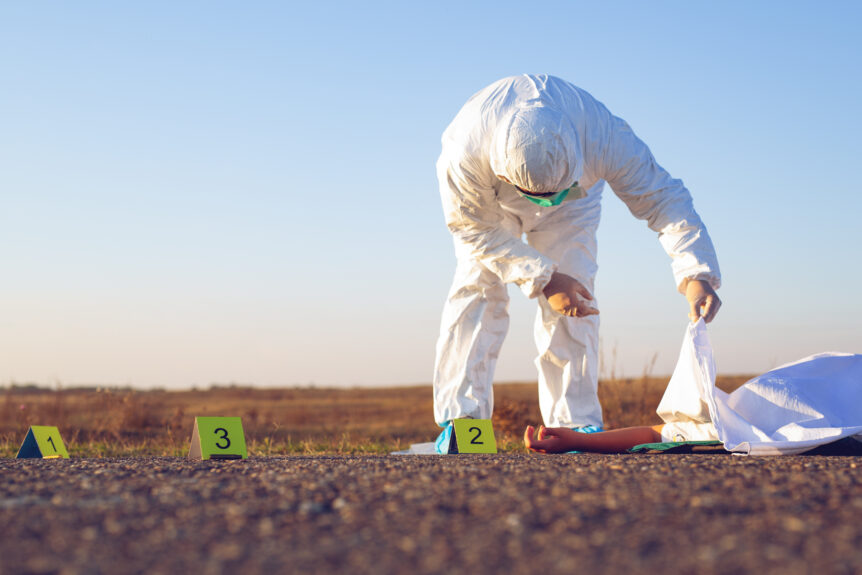Who Cleans Up Crime Scenes?
Cleaning up a crime scene can be a traumatic and dangerous task. It’s not a job that just anyone can handle – it requires special training and experience to ensure that the area is safe for everyone involved. But what do you call someone who does this job? At Caring Cleanup, we specialize in crime scene cleanup, and we believe that the best way to describe our profession is to call ourselves crime scene cleanup technicians.
One of the most challenging aspects of being a crime scene cleanup technician is the emotional toll that it can take on our team members. We are often the first people on the scene after a traumatic event has taken place, and we are tasked with cleaning up the aftermath. This can include cleaning up blood and other bodily fluids, removing hazardous materials, and making sure that the area is completely decontaminated. It’s a job that requires attention to detail, a strong technical background, and a great deal of compassion and empathy.
A crime scene cleanup technician is someone who is responsible for cleaning up the area where a crime has occurred. This can include homicides, suicides, and accidental deaths. They also clean up the aftermath of other traumatic events, such as natural disasters or accidents. The goal of a crime scene cleanup technician is to ensure that the area is completely cleaned up and that it is safe for everyone who may come into contact with it.
At Caring Cleanup, we believe that the best way to describe our profession is to use the term “crime scene cleanup technician”. This name reflects the technical nature of the job, the importance of safety protocols and regulations, and the emotional support that we provide to families and loved ones. We understand that cleaning up a crime scene is not just about removing physical evidence – it’s about providing closure and helping people to move forward.
There are a few other names that are sometimes used to describe someone who cleans up bodies or crime scenes. They include:
- Biohazard remediation technician: This name emphasizes the hazardous materials that we are dealing with and the importance of proper disposal procedures. It also highlights the risk of exposure to blood-borne pathogens and other contaminants.
- Trauma cleaning specialist: This name reflects the emotional impact of the job and the need for sensitivity and empathy in dealing with families and loved ones. It also emphasizes the importance of proper decontamination and disinfection protocols.
- Death scene cleaner: This is a broader term that can encompass a range of situations, including natural deaths, suicides, and accidental deaths. Like the other terms, it highlights the importance of proper cleaning and disposal procedures, as well as the emotional support that families and loved ones may need.
Despite these other names, we believe that calling ourselves crime scene cleanup technicians is the most accurate and descriptive term for what we do. We are responsible for cleaning up the aftermath of crimes and other traumatic events, and we do so with a high level of technical expertise, compassion, and empathy.
One of the most important aspects of our work is safety. Crime scene cleanup involves dealing with hazardous materials, including bodily fluids, chemicals, and other contaminants. We take great care to ensure that our team members are fully trained and equipped to handle these materials safely. We also follow strict safety protocols and regulations to ensure that the cleanup is carried out in a way that is both effective and safe.
Another important aspect of our work is discretion. We understand that cleaning up a crime scene can be a private matter, and we take great care to respect the privacy of our clients. We do not discuss the specifics of any case with anyone who is not authorized to know, and we take steps to protect the privacy of our clients throughout the process.
At Caring Cleanup, we understand that our clients are going through a difficult and emotional time. We strive to provide the best possible service to help them through this challenging time. We approach every job with care, compassion, and empathy, and we take pride in knowing that we are making a difference in the lives of those affected by traumatic events.
In conclusion, there is no one-size-fits-all answer to the question of what to call someone who cleans up bodies. However, at Caring Cleanup, we believe that the best term to describe our profession is “crime scene cleanup technician”. This term accurately reflects the technical nature of the job, the importance of safety protocols and regulations, and the compassion and empathy that are required to provide the best possible service to our clients. Our goal is to make a difficult situation easier for our clients by providing comprehensive and compassionate crime scene cleanup services.

